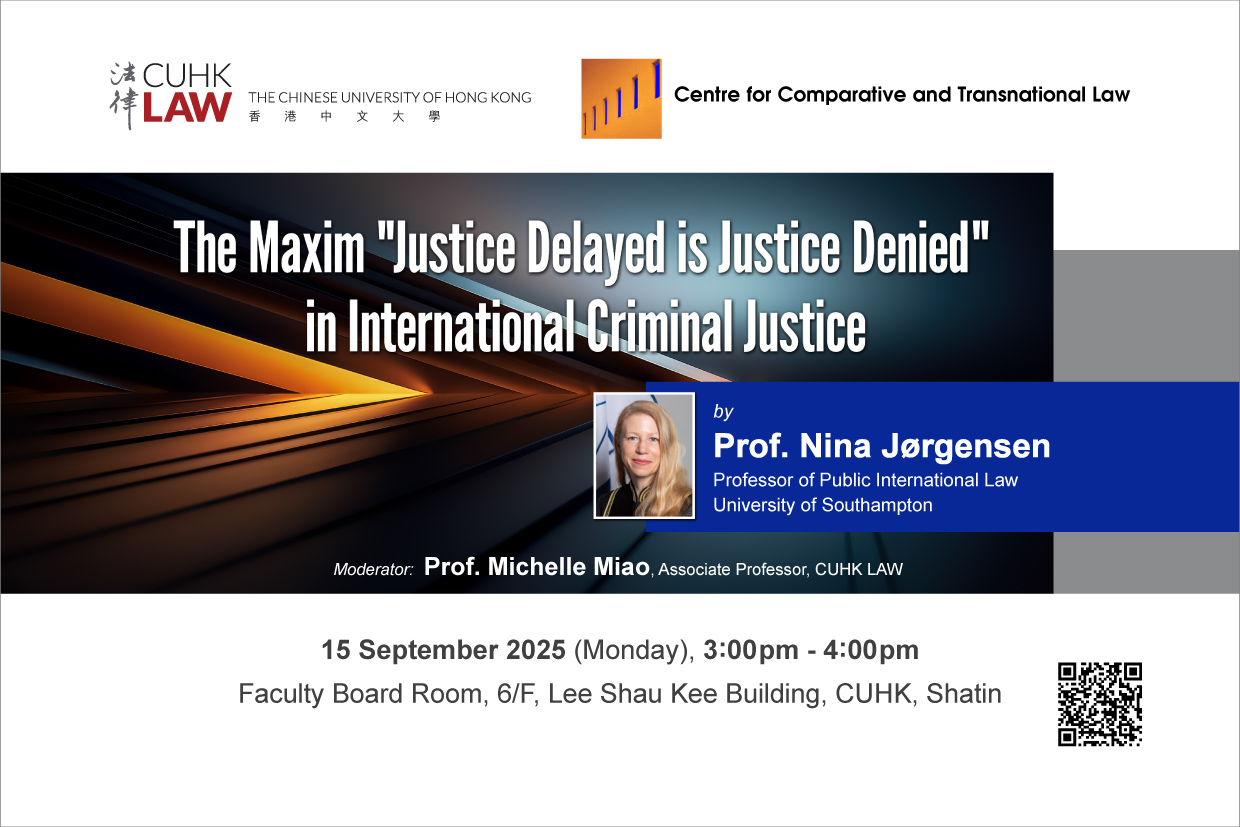活動
CUHK LAW CCTL Seminar – ‘The Maxim “Justice Delayed is Justice Denied” in International Criminal Justice’ by Prof. Nina Jørgensen
2025年9月15日
3:00 pm – 4:00 pm (HKT)
Faculty Board Room, 6/F, Lee Shau Kee Building, CUHK, Shatin
Judge Nina H.B. Jørgensen has been Professor of Public International Law at the University of Southampton since 2019 and served as Deputy Head of the Law School (research) from 2019 to 2021. She was previously Professor of Law (2014-2018) and Associate Professor of Law (2010-2014) at the Chinese University of Hong Kong. From 2001 to 2010, she worked in various capacities at the Special Court for Sierra Leone, including as Senior Appeals Counsel and Senior Legal Adviser for the Office of the Prosecutor, as well as at the Extraordinary Chambers in the Courts of Cambodia, and the International Criminal Tribunals for the former Yugoslavia and Rwanda. She has also worked for the OSCE Office for Democratic Institutions and Human Rights in Warsaw as the Legal Adviser for Tolerance and Non-Discrimination. She has further advised the United Nations and non-governmental organisations on matters relating to international criminal justice. Judge Jørgensen has a D.Phil. (doctorate) from the University of Oxford and a law degree from the University of Bristol (UK). She was called to the Bar of England and Wales (Gray’s Inn) in 1999 and has a practising certificate as a barrister. She has published widely in the field of international criminal law and procedure.
https://cloud.itsc.cuhk.edu.hk/webform/view.php?id=13716545
Registration Deadline: 12:30 pm (HKT), 15 September 2025
The maxim ‘justice delayed is justice denied’ serves as a foundation for two narratives that run parallel with each other in the trial and punishment of international crimes, the first relating to procedural efficiency and the second to the timing of justice. After tracing the historical origins of the maxim, the presentation will examine the operation of these coexisting narratives in international criminal justice according to the time it takes to tell the story (i.e. the length of the judicial process), the time between the stories (i.e. the period between the crime and the initiation of a process) and the time within the story (i.e. the temporal zone in which various factors coalesce to influence the timing of justice). It will be seen that while the maxim appropriately governs procedural efficiency, it should be minimized when evaluating the timing of post-atrocity justice due to the complexities of each story.
Language: English




